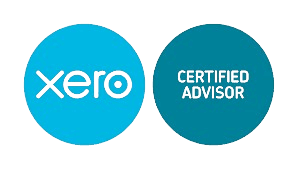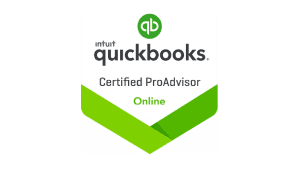Indonesia boasts a robust economy, creating a demand for professional accounting and bookkeeping services. Numerous esteemed firms have established themselves as frontrunners in delivering all-encompassing financial management solutions to businesses in diverse sectors. These leading accounting firms in Indonesia specialize in areas such as tax planning, auditing, financial reporting, and business advisory services. In this blog post, we will examine some of the most distinguished accounting and bookkeeping firms in Indonesia, showcasing their expertise, range of services, and unique attributes that differentiate them from the competition.
FMC
FMC stands out as a leader in delivering innovative bookkeeping and financial management solutions. By emphasizing technology and automation, they have transformed the accounting and bookkeeping landscape for businesses. Their cloud-based offerings and sophisticated accounting software have optimized processes, reduced errors, and improved efficiency for their clients. From everyday bookkeeping to financial analysis and CFO advisory services, FMC consistently achieves remarkable outcomes.
PT Consulting
Founded in 1995, PT Consulting has established itself as a premier accounting and advisory firm in Indonesia. Their team comprises highly skilled professionals, including Certified Public Accountants (CPAs) and tax specialists, who provide a wide array of services customized to the distinct requirements of businesses across different industries. Their offerings range from tax planning and compliance to auditing, financial reporting, and business advisory services. PT Consulting has earned a reputation for delivering outstanding results and helping clients maintain a competitive edge.
KPMG
KPMG is a prominent firm that has been serving clients in Indonesia for more than thirty years. Their expertise covers a diverse array of sectors, including manufacturing, retail, healthcare, and real estate. With a committed team of professionals and a focus on client needs, KPMG provides customized solutions tailored to each business. Their services include auditing and assurance, as well as tax planning and compliance, and they are known for their high-quality work and strong client relationships.
These leading accounting and bookkeeping firms in Indonesia have consistently showcased their expertise, professionalism, and dedication to providing exceptional services. Whether you are a large multinational corporation or a small business, selecting the right accounting and bookkeeping partner can significantly impact your financial success and growth.
Key challenges that accounting firms face in the Indonesian market:
Accounting firms in Indonesia face several challenges due to regulatory, economic, and technological factors. Some key challenges include:
1. Regulatory Complexity & Compliance
- Frequent changes in tax and financial regulations require firms to stay updated to ensure compliance.
- Implementation of the Omnibus Law and evolving tax policies create uncertainty for businesses.
- Compliance with international accounting standards (IFRS) while aligning with local PSAK (Indonesian GAAP).
2. Talent Shortages & Retention Issues
- High demand for skilled accountants, but limited supply of qualified professionals.
- Competition with multinational firms and corporations for top talent.
- Retaining employees amid rising expectations for better work-life balance and career growth.
3. Technological Disruptions
- Adoption of automation, AI, and cloud-based accounting tools is slow among smaller firms.
- Cybersecurity risks due to increasing digitalization of financial data.
- Need for digital transformation to stay competitive with tech-savvy firms.
4. Competition from Non-Traditional Players
- Rise of fintech and online accounting platforms offering cost-effective solutions.
- Increased competition from in-house corporate finance teams using AI-powered accounting software.
- Large multinational firms dominating the high-end market.
5. Economic Uncertainty & Business Slowdowns
- Inflation, currency fluctuations, and global economic trends impacting business confidence.
- MSMEs, a major client base for accounting firms, struggling with financial sustainability.
- Tax amnesty programs and government incentives affecting revenue streams.
6. Ethical & Fraud Risks
- Pressure from clients to manipulate financial reports for tax or investment benefits.
- Corruption risks and regulatory scrutiny in financial reporting.
- Stricter anti-money laundering (AML) compliance requirements.
7. Client Expectations & Fee Pressures
- Clients expecting more advisory services beyond traditional bookkeeping and auditing.
- Price-sensitive market where clients demand high-quality services at lower costs.
- Balancing affordability with maintaining service quality.
8. Integration with ESG & Sustainability Reporting
- Growing demand for sustainability and ESG (Environmental, Social, Governance) reporting.
- Lack of standardized ESG reporting frameworks in Indonesia.
- Businesses seeking accountants with ESG expertise to align with global trends.
Would you like insights on how firms can overcome these challenges?
Accounting Services for Key Sectors
- Small and Medium-sized Enterprises (SMEs): The backbone of many economies.
- Startups: Young companies needing a strong financial foundation.
- Non-Profit Organizations: Maintaining transparent financial records for responsible resource allocation.
- FinTech Companies: Navigating complex regulations and sensitive financial data.
- E-commerce Businesses: Managing finances in a fast-paced online environment.
- Healthcare: Ensuring proper coding and claims submission for healthcare providers.
- Manufacturing: Optimizing operations through cost accounting and financial analysis.
- Retail: Tracking inventory, analyzing trends, and optimizing profitability.
- Construction: Managing project costs, tracking expenses, and ensuring timely payments.
- Hospitality & Leisure: Optimizing revenue management and making data-driven decisions.
- Professional Services: Streamlining billing, tracking expenses, and ensuring profitability.
- Real Estate: Managing property income, expenses, and tax considerations.
- Government:Maintaining accurate and transparent financial reporting for public funds.
- Education: Managing budgets, tracking grants, and ensuring proper use of funds.
- Information Technology: Optimizing IT budgets and ensuring efficient resource allocation.
- Energy & Utilities: Managing complex billing structures and regulatory compliance.
- Media & Entertainment: Tracking royalties, managing production costs, and optimizing content monetization.
- Transportation & Logistics: Optimizing logistics networks, managing fuel costs, and ensuring efficient operations.
- Professional Sports: Managing player salaries, sponsorships, and ensuring financial stability.
- Agriculture: Maximizing crop yields, managing farm finances, and complying with regulations.
- Mining & Resources: Managing resource extraction costs, complying with environmental regulations.
- Manufacturing (Luxury Goods): Managing supply chains and finances for high-value products.
- Arts & Culture: Securing funding, managing grants, and ensuring financial sustainability of artistic endeavors.
- Environmental Services: Optimizing sustainability efforts and ensuring compliance with environmental regulations
- Cybersecurity: Managing security risks and ensuring financial stability in a digital age.
FAQs:
Q1- What services do top accounting firms in Indonesia offer?
Top accounting firms in Indonesia typically offer a wide range of services, including tax planning and compliance, auditing, financial reporting, bookkeeping, business advisory, and consulting services.
Q2- How do I choose the right accounting firm for my business?
When choosing an accounting firm, consider factors such as their industry expertise, reputation, client testimonials, service offerings, and pricing. It’s also essential to ensure that the firm’s values and approach align with your business goals and requirements.
Q3- Can accounting firms in Indonesia assist with international tax and financial reporting?
Yes, many top accounting firms in Indonesia have expertise in international tax laws and financial reporting standards. They can help businesses with cross-border transactions, transfer pricing, and compliance with global accounting regulations.
Q4- How do accounting firms in Indonesia ensure data security and confidentiality?
Reputable accounting firms in Indonesia implement robust data security measures, such as encryption, access controls, and secure data storage practices, to protect their clients’ sensitive financial information. They also adhere to strict confidentiality policies and industry best practices.





